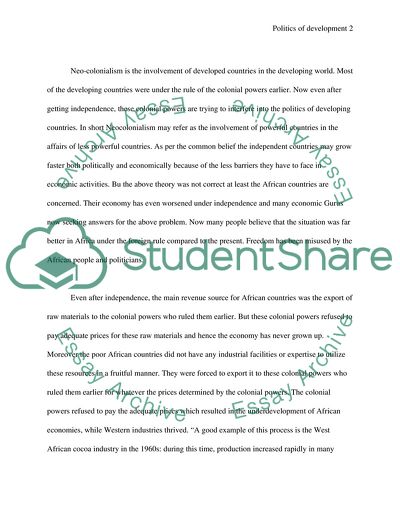Cite this document
(Politics of Development and Collective Economic Development Case Study - 1, n.d.)
Politics of Development and Collective Economic Development Case Study - 1. Retrieved from https://studentshare.org/macro-microeconomics/1723513-politics-of-development
Politics of Development and Collective Economic Development Case Study - 1. Retrieved from https://studentshare.org/macro-microeconomics/1723513-politics-of-development
(Politics of Development and Collective Economic Development Case Study - 1)
Politics of Development and Collective Economic Development Case Study - 1. https://studentshare.org/macro-microeconomics/1723513-politics-of-development.
Politics of Development and Collective Economic Development Case Study - 1. https://studentshare.org/macro-microeconomics/1723513-politics-of-development.
“Politics of Development and Collective Economic Development Case Study - 1”. https://studentshare.org/macro-microeconomics/1723513-politics-of-development.


